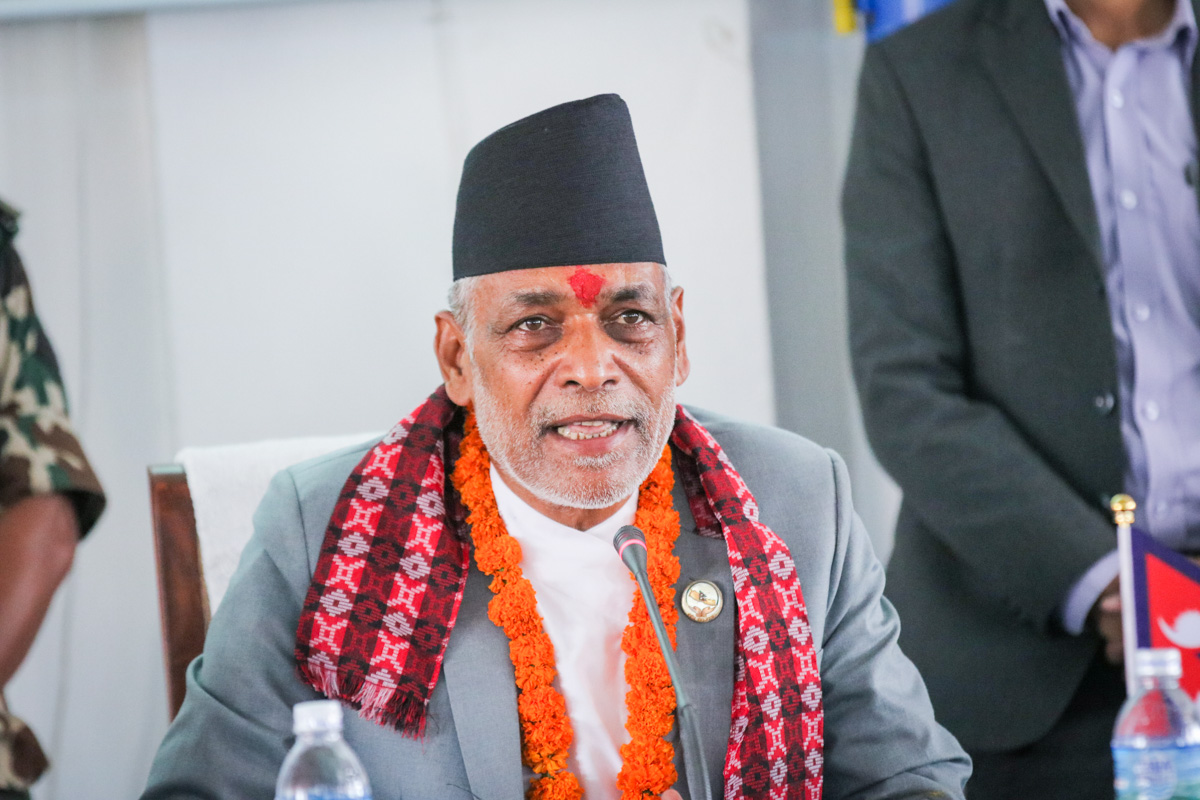BHAKTAPUR, July 3: Bhaktapur district has been identified as a high-risk area for both HIV/AIDS transmission and drug abuse, according to data released by the National Centre for AIDS and STD Control (NCASC) for 2024.
The center reports that 2 out of every 10 college-aged youths in Bhaktapur are involved in substance abuse, ranging from marijuana to injectable drugs. It is estimated that between 1,312 and 1,537 people in the district inject drugs, among them approximately 1,165 to 1,382 are men and 147 to 155 are women. The risk of HIV transmission is particularly high among those who use injectable drugs.
In addition, male, female, and third-gender sex workers in Bhaktapur are also considered at high risk. The NCASC estimates there are about 4,8180 to 5,434 female sex workers, 426 to 500 male sex workers, and 575 to 663 third-gender individuals in the district, of whom 261 to 325 are engaged in sex work.
The number of men who have sex with men (MSM) is estimated to be between 638 and 704. According to Rajesh Didiya, executive director of Suruwaat, an organization working in HIV/AIDS and substance abuse in Bhaktapur, sex workers, their clients, and people who inject drugs are highly vulnerable to HIV infection. If they do not adopt safe practices, the risk of HIV transmission is nearly certain, he warned.
Didiya added that the reuse of syringes among users has led to a rise in infections among young people in the district. He also said the amount of drugs seized by police on a daily basis further indicates the growing number of users.
Nepal faces high disaster risk, says Minister Adhikari

"Police efforts alone aren’t enough to control substance abuse," he said, "There must be awareness programs in schools and colleges, and community-based interventions cannot be ignored."
Despite the high risk, accurate data on the number of HIV-infected individuals in Bhaktapur is lacking. According to the ART (antiretroviral therapy) center at Bhaktapur Hospital, only 153 HIV-positive cases are officially reported, including 100 men, 45 women, 4 third-gender individuals, and 4 children.
Many infected people seek treatment in Kathmandu, Lalitpur, and Kavre instead of local centers due to fear of stigma and discrimination, said Srishti Aryal, a counselor at the Bhaktapur ART center. She noted that fear of being identified discourages many from using local health services.
Anjana Khadka, head of the District Public Health Office, described the HIV/AIDS situation in Bhaktapur as alarming. She emphasized that unless local stakeholders coordinate and collaborate, it will be difficult to mitigate the crisis.
She added that following the decentralization of health responsibilities to local governments, many programs related to HIV and drug abuse were discontinued, leading to a rise in risk.
In response to the growing concern, Suruwaat recently organized a district-level coordination meeting. The meeting, chaired by District Coordination Committee Chief Ishwar Bahadur Thapa, included health officials from local municipalities and representatives of NGOs working in the HIV and drug abuse sectors. Participants said that with federalism, health services have become disorganized and many previously running programs have come to a halt.
The meeting concluded that municipalities must prioritize public health alongside infrastructure development by allocating appropriate budgets and launching programs. Didiya said the meeting stressed the need for joint efforts from all stakeholders to collect accurate data on HIV-infected individuals and drug users in the district.
Roshan Suwal from SATCATS, an organization working with female sex workers in Bhaktapur, reported that they are in contact with 2,983 sex workers and 5,339 clients. He noted that various programs are being run to prevent HIV transmission among them.
"Since Bhaktapur is a transit point to and from Kathmandu, we believe the actual number of sex workers and their clients is higher than the figures suggest," said Suwal, "If the issue isn’t taken seriously, the HIV situation will worsen significantly."
District Coordination Committee Chief Thapa stressed that municipalities should allocate fair budgets and programs to protect youth from falling into addiction and HIV risk. He also pledged to coordinate with the mayors of the four municipalities in Bhaktapur to help prevent the spread of HIV and drug abuse.
Radha Krishna Khatiwada, Bhaktapur’s District Coordination Officer, recalled that there used to be a dedicated HIV/AIDS committee at the district level before federalism. He emphasized the need for such mechanisms again, with support from local governments.
Likewise, Public Health Office Chief Khadka expressed her commitment to reviving and expanding HIV/AIDS-related programs that have declined since the health budget shifted to local authorities.




































